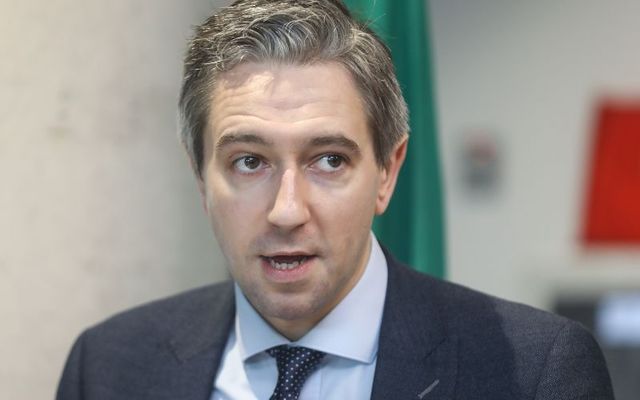Simon Harris, Ireland's Minister for Further and Higher Education, Research, Innovation, and Science, is on track to become Ireland's next Taoiseach after he swiftly secured the necessary nominations for the Fine Gael leadership contest.
The Fine Gael Executive Council agreed to the nomination procedure for candidates on Wednesday night, just hours after Leo Varadkar made his surprise announcement that he was resigning as Taoiseach and leader of Fine Gael.
With Varadkar's departure, Fine Gael will need to elect a new leader who will then - pending a Dail vote - become Taoiseach.
Nominations for the next leader of Fine Gael opened at 10 am on Thursday and will close on Monday, March 25 at 1 pm.
Candidates must be nominated by at least 10% (six members) of Fine Gael's Parliamentary Party (PP), which is comprised of TDs, Senators, and MEPs.
By Thursday morning, Harris had reached the 10% threshold. By Thursday evening, he had secured endorsements from more than 40% of Fine Gael's parliamentary party.
Later on Thursday, Harris formally announced on RTE that he would be seeking the leadership position, adding that he was "overwhelmed and extremely grateful for support" he has already received:
Simon Harris has confirmed he will run for the leadership of Fine Gael | Read more: https://t.co/EW53Ux6q4N pic.twitter.com/dxoh7c8uso
— RTÉ News (@rtenews) March 21, 2024
After the nominations period ends on Monday, three regional meetings will take place on Tuesday, Wednesday, and Thursday. They will be live-streamed on Fine Gael's social media channels, with further details to be announced in due course.
Voting for almost 20,000 eligible party members will take place nationwide at more than 20 polling stations from Tuesday, April 2 to Thursday, April 4. Party members must be affiliated for at least two years to be eligible to vote.
All votes will be brought to a National Count Centre on Friday, April 5, where they will be verified and counted under the supervision of the National Returning Officer, Willie Geraghty.
Votes will be weighted in accordance with the Fine Gael electoral college rules, with the 54 members of the Parliamentary Party accounting for 65% of the total vote, 20,000 party members accounting for 25%, and 249 local representatives (councillors and Údarás na Gaeltachta board members) accounting for the remaining 10% of the vote.
The result will be officially announced at the count centre on Friday, April 5.
The Fine Gael Ard Fheis is due to be held the following day, April 6.
Chairman of Fine Gael's Executive Council Willie Geraghty, who has been appointed the National Returning Officer, said: “Fine Gael is an open and democratic party. Our next leader will be elected in an open and transparent manner.
“The party’s Executive Council thanked Taoiseach Leo Varadkar for his service to the Party and to the country since his first electoral contest in 1999.
“We have now set in train the process of electing a new party leader and have decided to issue a call for nominations to the parliamentary party. The party's constitution and rules clearly sets out the procedures to be followed. Tonight’s meeting initiates the first steps in that process."
In his surprise resignation announcement on Wednesday afternoon in Dublin, Varadkar said in part: “I am resigning as president and leader of Fine Gael effective today and will resign as Taoiseach as soon as my successor is able to take up that office.
"I have asked our party general secretary and executive council to provide for the new leader to be elected in advance of the Ard Fheis on Saturday, April 6, thus allowing a new Taoiseach to be elected when the Dáil resumes after the Easter break.”
Varadkar was flanked by members of Fine Gael, including Harris, during the live address.
Later on Wednesday, the Fine Gael Executive Council met and decided that nominations to become the next party leader would open on Thursday morning and close on Monday afternoon.
Several Fine Gael members considered to be contenders for the leadership role -- such as Simon Coveney, Helen McEntee, and Paschal Donohoe -- quickly indicated that they would not be seeking the position and or that they were endorsing Harris.
At 37 years old, Harris, who previously served as Ireland's Minister for Justice and Minister for Health, would become the youngest-ever Taoiseach, beating out Varadkar, who was 38 when he was appointed in 2017.




Comments